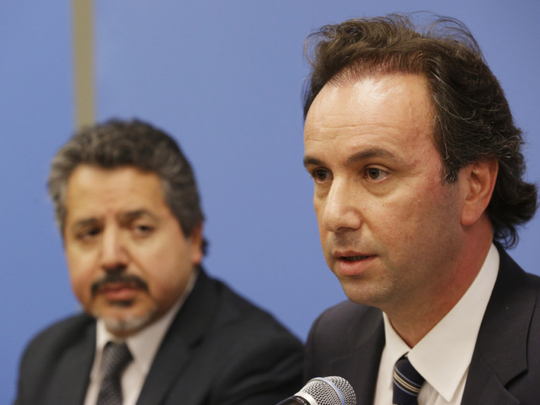
Beirut: Unlike previous conventions that were attended by high profile politicians and civilians who had little influence on the ground, the Riyadh Conference is different because armed groups will be in the room, collectively agreeing to join a political process for the first time since 2011.
Fifteen military rebel groups will be there which is a breakthrough in itself. Past conferences were mainly attended by civilian politicians who had no real influence on the ground. Many had been living abroad for years and never held a gun in their lives.
Agreements reached in past conferences were unsuccessful because they were not signed off by rebel commanders who often scoffed at the distant dictates of Syrian politicians, either from the Syrian National Coordination Committee or the Syrian National Coalition.
The fact that military men and politicians are in the same room is a testimony of Riyadh’s seriousness to unite the opposition front ahead of talks with the Syrian regime expected in January.
The rebel groups invited to Riyadh are considered to be ‘moderate’ according to Saudi officials. They include the Saudi-backed Jaish Al Islam, headed by Zahran Alloush, which is dominant on the outskirts of Damascus.
Also invited are Jabhat Al Asala Wa Al Tanmiya, a Turkish-backed group dominant in the Aleppo countryside, commanded by Eyad Mohammad Shami,
The various rebel groups attending command anywhere from 400 to 30,000 men.
Both the Al-Qaida affiliated Jabhat Al Nusra and Daesh have been blacklisted from attending.
Also banned from participating is the Kurdish Democratic Union Party, a group that has played a critical role in fighting back Daesh advances in the north of Syria, but is disliked and not trusted by Turkey because of links to the PKK.
The rebel groups attending have all agreed to a set plan to fight terrorism, return refugees to their homes, implement working ceasefires and expel all foreign fighters from Syria.
All groups agree Syrian President Bashar Al Assad cannot be part of any political transition. Any political process must be jointly backed by Riyadh, Ankara and Doha, all backing various opposition groups.
Syrian opposition heavyweights such as economist Aref Dalila, human rights lawyer Haitham Manaa and Mohammad Farouk Tayfour of the Syrian Muslim Brotherhood are attending the talks.
Several high profile figures have been not invited to the talks, like the Paris-based defected Republican Guard General Manaf Tlass. Former president of the Syrian National Coordination Coalition, Mu’ath Al Khatib, declined to attend.
-Sami Moubayed is a Syrian historian and former Carnegie scholar. He is also author of “Under the Black Flag: At the frontier of the New Jihad”












